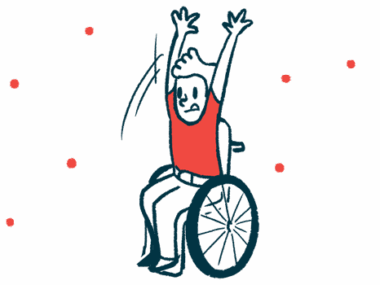My Body Is My Home
Written by |

I write a lot about the body.
It’s inescapable in my line of work. I identify as disabled, and more than that, my disability is painfully visible. But my interests are rooted in the metaphysical. If I’m not writing about mental health, which has everything to do with physicality and embodiment, I’m writing about imaginary worlds that do not punish me for having a faulty body.
To be sure, I also write about stars and fairy tales and entities that lurk at the edges of what is known. But even those things are connected to the body — to my body, and how my body has impacted the ways in which I interact with the world. Even my love of “Star Wars” is indirectly related to embodiment. I grew up believing that bodies like mine would not thrive in galaxies far, far away. Everything I do is, in essence, a giant middle finger to all the narratives that don’t have room for people like me.
I’ve studied the intricacies of the mind-body relationship. I know that my sense of embodiment — how I feel in my body — affects not only my mental health but my emotional, social, and spiritual health as well. It’s all connected, and it starts at point zero. It starts with the body.
So embodiment is part of my work. I write about pain and self-image and the somatic manifestations of anxiety. I write about loving and hating my body in turn. I write about monstrosity and radical acts of self-acceptance.
But the body never gets easier to write about.
I was recently catching up on this year’s Evolving Faith conference, which centered around a fresh reimagining of Christian faith. In conversation with Winnie Varghese, Carol Gallagher, Jen Hatmaker, and Sarah Bessey, author and speaker Jeff Chu said something that transformed my views on embodiment: “What if the first home we have to return to is our body?”
I don’t speak for all disabled folks, but I think many of us see the body as a burden. A mistake. Something that causes grief, and something we wouldn’t hesitate to change or “fix.”
The body is physical in that it is a site of interaction. But I like the idea of body as “home.” Note the particular neutrality of the term. “Home” is deeply personal. “Home” is where we begin. But “home” has positive and negative connotations. A home can be a shelter or place of refuge, but it can also be a foreign land. A home can offer belonging or estrangement. A home can be a destination or a persistent perpetrator of harm.
We begin at home. We begin in our bodies — our small, frail, dependent bodies, that grow and change over the course of our lives. We can run from home, or we can give into the tug at our wrist, and return to the one place that is always available to us, no matter where we are.
What if the first home we have to return to is that place that has felt alienated, marginalized, and loathed by our very selves?
It’s easy for me to hate my body — the muscles that will continue to waste away; the skin that revolts every couple of years, no matter the medication or treatment or nontoxic, certified organic topical I happen to be experimenting with at the time; the sinuses that never clear up. My body represents everything that is wrong with me. The life I could’ve had if my home was happier or healthier or genetically aligned.
I can’t change where I come from, and I hate that. My body is my biggest failure, the origin story I can’t rewrite.
But it is also my biggest strength. My body is the culmination of everything I have ever survived, from heartbreaks to weeks-long hospital stays. My body is my source of vitality, allowing me to think, to smell, to touch, to laugh, and to cry, and yes, to experience pleasure. My body is the monster, with all its rule-breaking proclivities, and the love interest. (In “Star Wars” terminology, my body is Kylo Ren, the protagonist-turned-villain who just needs someone to believe in him.) My body is disappointment, and resilience, and hope, and rest, and looking to the horizon, even when it’s hard, because my past informs — but does not decide — my future.
My body is my breath. My anchor to reality. Ground to return to, time and again.
I am trying to see my body as a revolution. There is so much about this world that I could do without. So much that I would like to change. And it starts here, point zero, my perfectly imperfect body.
It starts in the early morning hours, my cat curled next to me, the suburbs stirring outside my window. I’m sore, tired, and preemptively overwhelmed. But I am alive. I am back in my body, preparing for another day, another opportunity to love myself into a new story, one of stars and fairy tales and spherical droids.
It’s something. And sometimes, most times, it’s enough.
***
Note: SMA News Today is strictly a news and information website about the disease. It does not provide medical advice, diagnosis, or treatment. This content is not intended to be a substitute for professional medical advice, diagnosis, or treatment. Always seek the advice of your physician or other qualified health provider with any questions you may have regarding a medical condition. Never disregard professional medical advice or delay in seeking it because of something you have read on this website. The opinions expressed in this column are not those of SMA News Today, or its parent company, Bionews, and are intended to spark discussion about issues pertaining to spinal muscular atrophy.




Leave a comment
Fill in the required fields to post. Your email address will not be published.